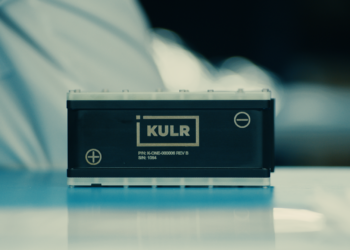RP1 combined with nivolumab shows meaningful tumor response in rare and aggressive skin cancer
Replimune Group (REPL), a clinical-stage biotechnology company specializing in oncolytic immunotherapies, released encouraging new clinical data at the European Society for Medical Oncology (ESMO) Congress 2025 in Berlin. The company presented results from an ad hoc analysis of the IGNYTE Phase 2 study evaluating RP1 in combination with nivolumab in patients with acral melanoma. The findings were shared by Dr. Caroline Robert, M.D., Ph.D., in Poster 1644P at the event.
Acral melanoma is a rare subtype of skin cancer, representing only 2–3% of melanoma cases globally. Unlike more common melanomas linked to sun exposure, acral melanoma occurs on the palms, soles, and beneath the nails. It is typically aggressive and associated with poorer patient outcomes due to late detection and limited responsiveness to available therapies. Standard immune checkpoint inhibitors have historically shown low response rates in this form of melanoma, leaving patients with few treatment options after first-line therapies fail.
Against this backdrop, Replimune’s interim results offer new hope. The combination of RP1, an investigational oncolytic immunotherapy, with nivolumab produced an objective response rate of 44% (8 of 18 patients) in acral melanoma patients within the IGNYTE trial. Importantly, patients experienced a median duration of response of 11.9 months, with some responses ongoing. The therapy also demonstrated a favorable safety profile, with most treatment-related side effects classified as mild to moderate (grade 1–2) and transient in nature.
Replimune is advancing its research through the IGNYTE-3 Phase 3 clinical trial, which is currently recruiting. This pivotal study compares RP1 plus nivolumab to the physician’s choice of treatment in patients whose melanoma has progressed despite prior anti–PD-1 and anti–CTLA-4 immunotherapy.
In addition to the melanoma findings, Replimune presented another poster at ESMO titled “Efficacy and safety of RP1 + nivolumab in patients with non-melanoma skin cancers (NMSC),” led by Dr. Dirk Schadendorf (Poster 1661P), highlighting broader potential applications of RP1.
These developments reinforce Replimune’s growing role in advancing innovative cancer immunotherapies and may signal progress toward new treatment pathways for patients facing difficult-to-treat skin cancers.
You might like this article:AMD Charges Past Previous Peaks as Chipmaker Hits Fresh All-Time High











